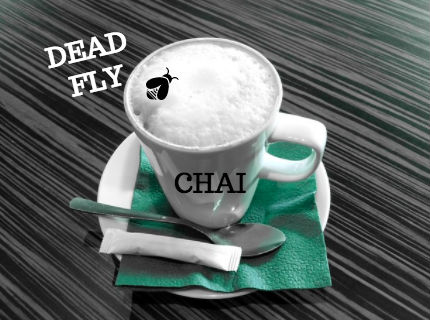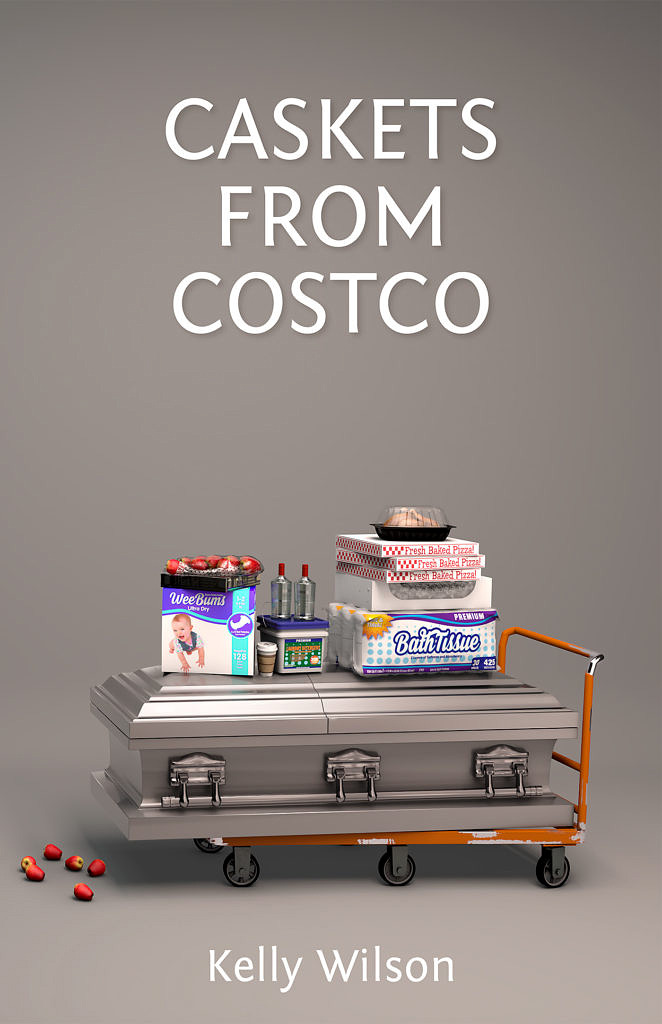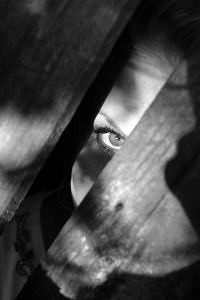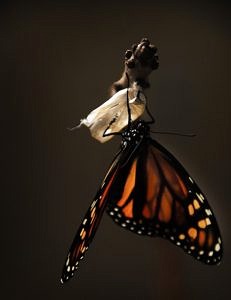
As a young 24-year-old, I spent two and half weeks in Kenya with undiagnosed Post Traumatic Stress Disorder. Spoiler alert: I totally triggered out about halfway through, with no understanding or explanation of what was going on in my brain.
It was during that trip that I heard a phrase from one of the other church group members on our team. We stood in a patchy field under the dappling shadows of one of many types of unfamiliar trees in the countryside outside of Nairobi. Goats and cows grazed nearby.
We held small cups of chai. I call it Barnyard Chai, because if the cup is held under an udder *and* you pick hay out of your cup to take a drink, then it’s from a barnyard.
A fly flew into my new friend’s cup of Barnyard Chai, landed, and died. Legs straight and wings limp, the black raisin-like body floated on the surface of the beige liquid.
She sighed and said, “This is not me. I am not here.” And she reached in and flicked the fly out of her cup, taking a swig.
PTSD Escapism: “This is not me, I am not here”
That phrase was magic. First, I cracked up, of course, watching the dead fly arc through the air, landing in the dirt. Genius, I thought.
 I hung on to that phrase and used it through years of turmoil and trauma. A few years later when my first child was born in the midst of a rare pregnancy disease and we both almost died. A couple of years after that, when my second child was born after I spent a month in the hospital on mandatory bedrest. A year after that, when I broke after a cherished family member died. Through the years of my children’s infancy and toddlerhood, through nights and weekends alone when my husband was working his demanding job, through job changes and layoffs, when friendships died and when I staved off the dark cloud of hopelessness that threatened to engulf me.
I hung on to that phrase and used it through years of turmoil and trauma. A few years later when my first child was born in the midst of a rare pregnancy disease and we both almost died. A couple of years after that, when my second child was born after I spent a month in the hospital on mandatory bedrest. A year after that, when I broke after a cherished family member died. Through the years of my children’s infancy and toddlerhood, through nights and weekends alone when my husband was working his demanding job, through job changes and layoffs, when friendships died and when I staved off the dark cloud of hopelessness that threatened to engulf me.
Now my children are 15 and 12 years old. My marriage is being broken down and built back up. And I’m thinking that this PTSD escapism and daydreaming and fantasy world isn’t the best coping skill anymore.
From Dissociation to Escapism
At this point, I feel like I need to remind everyone that I am not a therapist or medical professional. I am a person who was diagnosed with C-PTSD in 2006 and have been living out my healing and recovery ever since. If you have additional questions about PTSD, dissociation, and dissociative identity disorder, please contact a medical professional.
 Dissociation is that emotional numbing that we feel, the sensation of being outside of ourselves while the trauma was happening and when we have nightmares and flashbacks. I personally consider dissociation involuntary, as this is what my brain did when my sexual abuse happened. My brain protected me through unplugging me from the trauma as it took place over the years.
Dissociation is that emotional numbing that we feel, the sensation of being outside of ourselves while the trauma was happening and when we have nightmares and flashbacks. I personally consider dissociation involuntary, as this is what my brain did when my sexual abuse happened. My brain protected me through unplugging me from the trauma as it took place over the years.
I experience dissociation when I have PTSD triggers, resulting in both intense emotions and my perceived inability and difficulty handling these emotions. Other symptoms can include unexpected mood swings, feeling separate from yourself and others, and trouble concentrating or with memory.
These sensations are familiar to me now, part of the trigger process, and they eventually fade. Escapism, though – I think this has become a problem for me.
The Habit of Escapism
Escapism for me is such a strong habit that it almost seems involuntary. A compulsion. In my research, this is my favorite description of what escapism has become for me:
Escapism is a way of attempting to make negative feelings dissipate, without working through the necessary steps in order to come to relief through mental resolution. It’s a false economy, a quick fix, a crutch, a placebo. Sadly, like all addictions, it will only reinforce your feelings of anxiety further, whilst you seek out new ways to cope. And exactly like all addictions, such coping strategies will begin to unravel, break down and ultimately fail.
Every day, many times throughout the day, I live in this fantasy world that keeps me insulated from real life. The result is feeling increasingly disconnected and alone.
I was recently put on a strict diet by my doctor, which seems unrelated, but it is not. I have serious health issues that require this strict diet, or I will need to go on medication as my health inevitably gets worse. I’m 43 years old. I’m not ready to give up. At the same time, I am fighting against a compulsion to eat, another addiction to sugar and comfort that grew out of a traumatic childhood.
And like my doctor gave me a wake up call with eating and my health, my brain’s escapism habit began to leak into my real life. Stealing it. This is tough and even embarrassing for me to admit, but there it is.
Eating. Fantasy life. Porn. TV and movies. Social media. Alcohol and drug addiction. These are all forms of escapism.
Escaping the PTSD Escapism
 I wish I had the unequivocal answer for how to escape the habit – the compulsion – the perceived need of escapism. The thing about escapism is that it is a choice. I – we – have control over our thoughts, regardless of what we believe. We can choose to be present, to practice be-ing in the midst of the pain and emptiness and fear of the dark cloud.
I wish I had the unequivocal answer for how to escape the habit – the compulsion – the perceived need of escapism. The thing about escapism is that it is a choice. I – we – have control over our thoughts, regardless of what we believe. We can choose to be present, to practice be-ing in the midst of the pain and emptiness and fear of the dark cloud.
When I have practiced mindfulness – the settling and breathing and looking my emotions and PTSD escapism right in the face – I have encountered the person I really am. Those pieces of me that were shattered and stolen. Those jagged shards that were not destroyed.
And if I wasn’t destroyed by all that, I’m certainly not going to be destroyed by simply working to heal.
I didn’t know some of the shit my body does is dissociating until my therapist told me, recently. I always called it a mutant thing, as it seemed genetic because my dad can do it as well as I can. Shut down feelings, shut down parts of our feeling brain. It’s funny what your brain learns to do over the course of your life, to protect itself. My brain learned it could use my body as a shield; read: my brain is an asshole. Now I get to un-learn learned behaviors. Yep, this is totally how I wanted to spend my early thirties (not).
Jen, it’s tough work, but you are a badass. I know this is not how you wanted to spend your early thirties. I know, probably better than anyone. Sending you hugs.